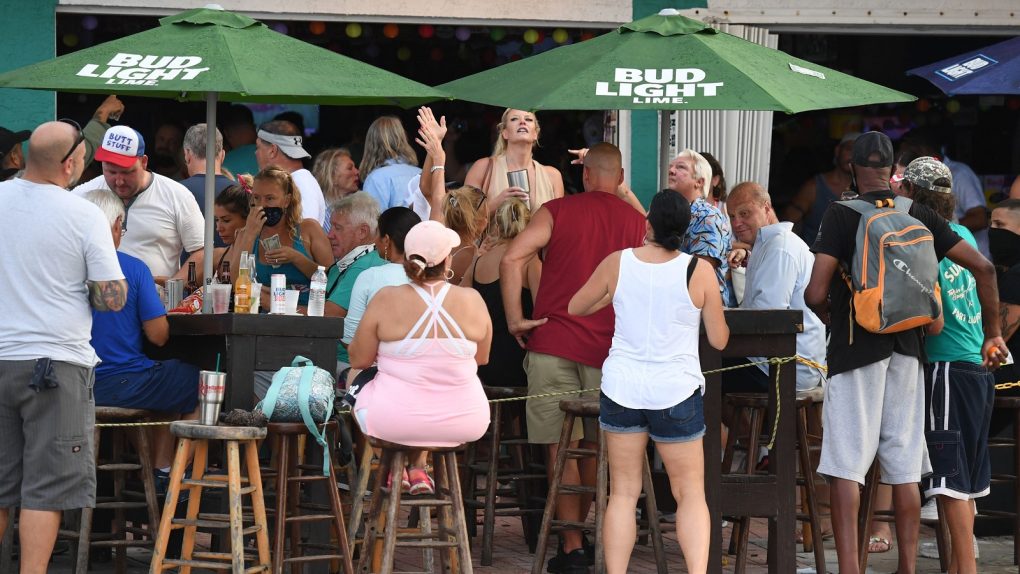- Florida managed to get its novel coronavirus infection rate under control after spiking in July, but the state has seen a 13% increase in the last week.
- Florida Governor Ron DeSantis signed an executive order at the end of September allowing all bars and restaurants in the state to reopen at 100% capacity.
- Public health experts believe Florida could be in for another major COVID-19 outbreak.
At one point over the summer, Florida was the global epicenter of the novel coronavirus pandemic. More than 10,000 cases were being reported each and every day, hospitals were hitting capacity, and the death rate was tragically high. But after spiking in July, the infection rate began to fall rather swiftly. Unfortunately, after trending in the right direction throughout August and most of September, there are now signs of a new spike in Florida.
According to the latest numbers from The New York Times, the seven-day average of daily confirmed Covid-19 cases in Florida jumped from 2,313 on October 7th to 2,704 on October 14th. That’s a 13% increase, and while it’s too early to tell whether or not it will result in a breakout like Wisconsin’s, it’s a troubling development.
“Florida is ripe for another large outbreak,” Dr. Michael Osterholm, former HHS Special Adviser, told CNN in a recent TV interview. “What they’ve done is opened up everything as if nothing had ever happened there. You and I could be talking probably in about 8 to 10 weeks and I will likely bet that Florida will be a house on fire.”
Osterholm is referring to the executive order that Florida Governor Ron DeSantis signed late last month which allows all restaurants and bars to immediately begin operating at 100% capacity. The order restricts local governments from limiting restaurants to less than 50% capacity, even with Covid-19 emergency orders. If a local government wants to limit a business’s capacity below 100%, it has to explain why the limitation is necessary for public health and give a breakdown of the economic impact that its emergency order will have on the business.
DeSantis also suspended all fines and penalties for mask violations, and according to an ABC News report, people are gathering at bars and restaurants across the state en masse. “We’re generally concerned that we’re going to find ourselves on the other side of an inverted curve and erasing all the progress we’ve made,” said Albert Garcia, leader of Miami’s Wynwood Business Improvement District, representing 50 blocks of bars and restaurants.
To date, more than 740,000 people in Florida have tested positive for the novel coronavirus. That’s the third-most of any state in the country, ahead of fourth-place New York by more than 250,000 cases.
“What I’m concerned with in states like Florida, who have widely opened, is what’s going to happen in November, based on what we’re seeing with hospitalization data right now,” Jessica Malaty Rivera, a microbiologist and science communication lead with the COVID Tracking Project, told Healthline. “What’s concerning is the trend overall. So you start to see an increase in cases… then that turns into an increase in hospitalizations, which will eventually result in an increase in deaths. It’s one of those states we would keep our eye on.”








